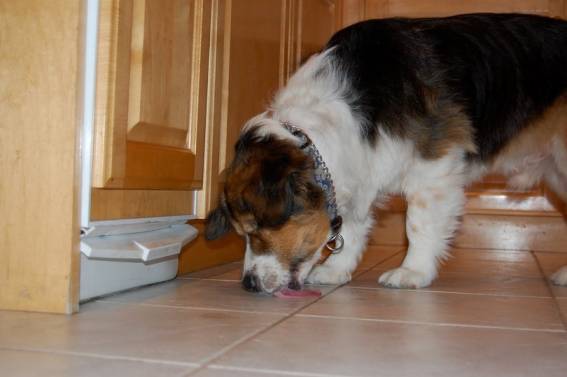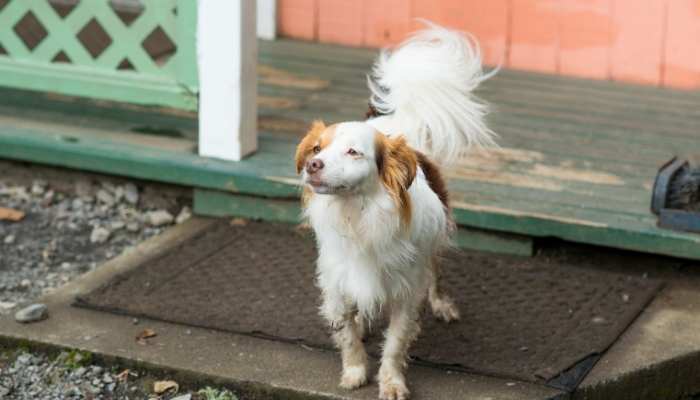Slugs are not highly appreciated creatures, though they are great for the environment! However, sometimes dogs will become very curious about slugs. They may be fascinated by the slow-moving creatures or in the slime trails they leave behind. What happens if a dog licks a slug?
Connect with a verified veterinarian in minutes. Licensed vets are available 24/7 to answer your questions. No need to worry about your furry family member.
Has your dog licked a slug? Are you worried the slug could make your dog sick? If so, then you’ve come to the right place. We understand it can be scary when your dog does something like this.
In this article, we’ll take a look at what a slug is and whether or not it can make a dog sick. Let’s get started!
What is a Slug?
A slug is a shell-less animal that resembles a snail. They are a type of terrestrial gastropod mollusk, believe it or not! Slugs come in many varieties and have tentacles (antennae) on their heads, a tail, and a single huge foot.
The body of a slug is very soft and can easily dry out. This is why slugs produce mucus. The mucus encases the slug’s body and creates the slime trail where the slug has traveled. The mucus works to keep the slug’s body protected from drying out. What’s more, the slime trail also contains pheromones that help the slug to find a mate. A slug’s mucus covering can even make it more difficult for predators to pick up and eat the slug.
While slugs seem gross to us, dogs sometimes really love to chase and/or eat these animals! But what happens if a dog licks or eats a slug?
Slugs & Dogs
Slugs are not toxic to dogs; however, they do carry a very dangerous parasite called lungworm. Dogs can become infected just from licking a slug or its slime trail.
Lungworm is dangerous because it attacks the heart and lungs of the dog. Left untreated, lungworm can cause damage to the cardiovascular system and the lungs. They can even cause death in dogs.
What’s more, slugs may also carry salmonella, which is a very dangerous bacterial infection that can also affect dogs.

Review symptoms, medications & behavior to keep your pets healthy with a Vet Online in just minutes.
Ask a Vet Live NowSymptoms of Lungworm in Dogs
You may notice these symptoms if your dog has licked a slug or its slime trail:
- Mucus around the dog’s mouth
- Vomiting
- Fatigue
- Weight loss
- Breathing difficulties
- Diarrhea
- Coughing (may bring up blood)
- Poor blood clotting/persistent bleeding
- Overall illness
- Stomach and back pain
- Depression
- Seizures
If your dog shows any of these symptoms, then do call the vet immediately. This could be an emergency.
Treatment of Lungworm in Dogs
Fortunately, the vet will have medication to treat the lungworm, which is a type of anti-parasitical treatment. The medication works to kill the lungworm in the dog’s body. However, do keep in mind the longer the infection lasts, the more permanent damage it can leave behind, even when the lungworms have been killed off.
The good news is that when the infection is caught early, your dog should make a full recovery!
Connect with a verified veterinarian in minutes. Licensed vets are available 24/7 to answer your questions. No need to worry about your furry family member.

Kim
Kim is a talented author, who loves animals especially dogs. She engaged in writing books and articles relating to animals a decade ago. Kim resides in Chicago with her husband and son. The family is the proud owner of a dog and a parrot (Jack and Lily). Kim wanted more than these two pets, but her husband put his foot down... She often visits elementary schools to talk to the kids about what she learned about pets and how they could learn from them.
Review symptoms, medications & behavior to keep your pets healthy with a Vet Online in just minutes.
Ask a Vet Live Now



